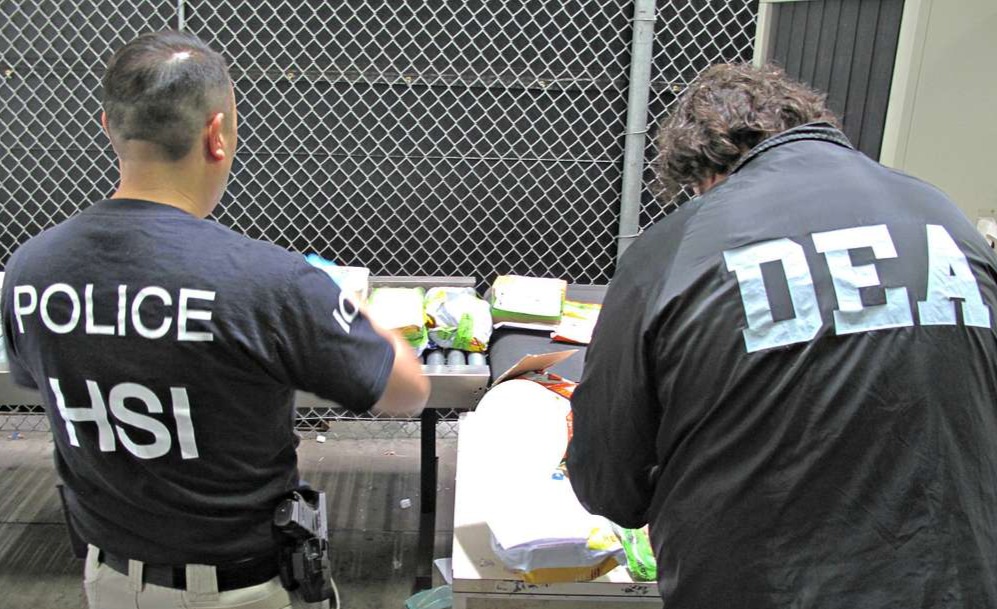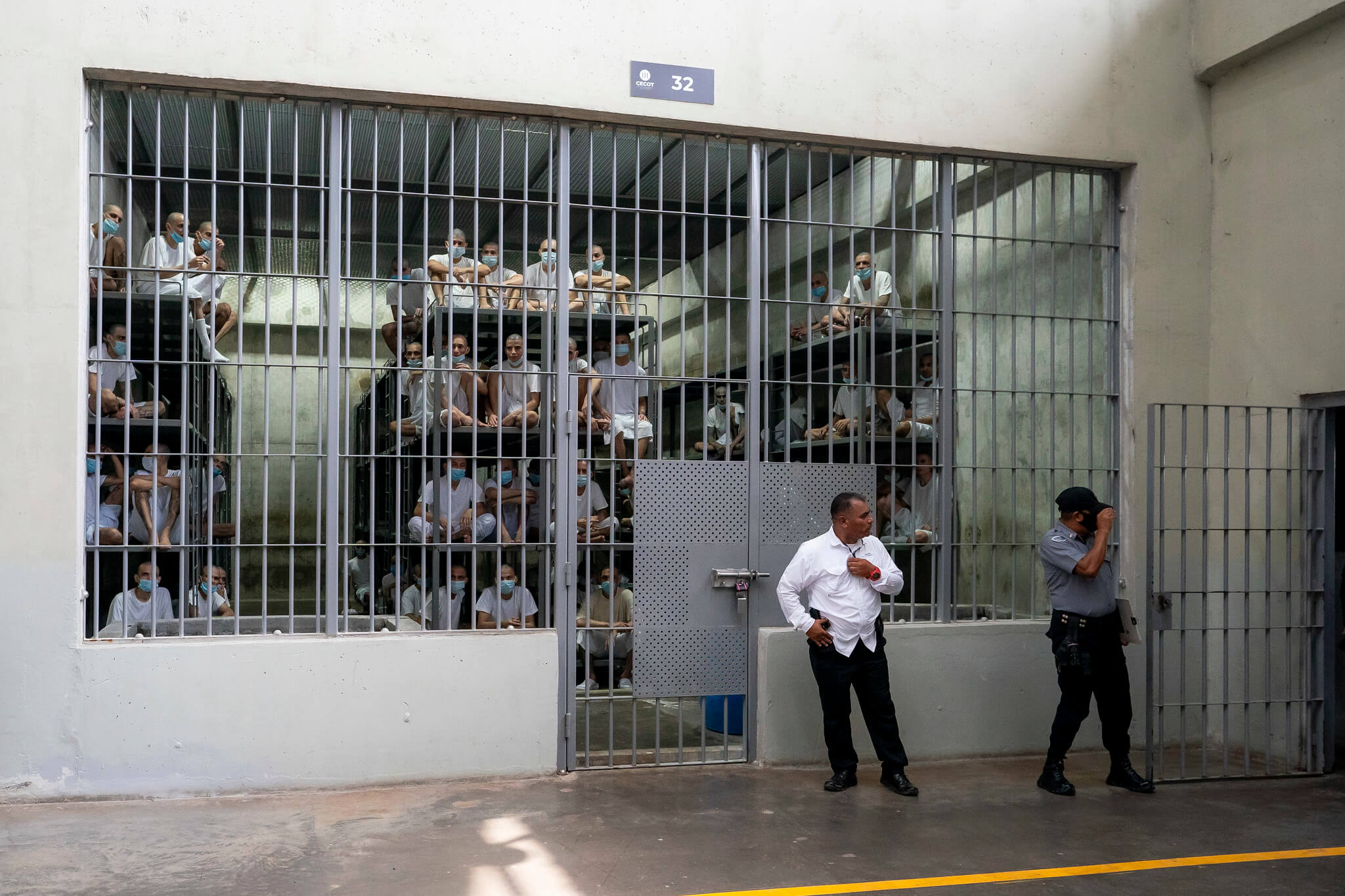Today's Headlines and Commentary
The tension was palpable in a meeting yesterday between U.S. Secretary of Defense Ashton Carter and Israeli Prime Minister Benjamin Netanyahu. The two discussed the Iran Deal, and ways to contain the Islamic Republic's support for proxy groups such as Hezbollah and Hamas. Later in the day, while speaking to U.S.
The tension was palpable in a meeting yesterday between U.S. Secretary of Defense Ashton Carter and Israeli Prime Minister Benjamin Netanyahu. The two discussed the Iran Deal, and ways to contain the Islamic Republic's support for proxy groups such as Hezbollah and Hamas. Later in the day, while speaking to U.S. troops about his meeting at an air base in Jordan, Carter said: “We don’t agree on everything, and the Prime Minister made it quite clear that he disagreed with us on the nuclear deal with Iran. But friends can disagree.” Carter emphasized that the United States will “look after Israel despite the disagreement over the Iran nuclear deal,” the New York Times reports.
While Carter met with Netanyahu in Israel, Energy Secretary Ernest Moniz met with bipartisan heads of the Senate Foreign Relations Committee over two documents about the multinational accord on Iran's nuclear program, the Hill writes. According to Foreign Relations Chairman Bob Corker (R-Tenn.) and ranking member Ben Cardin (D-Md), one of the documents pertained to Iran’s Parchin military complex and the other related to “a side agreement that Iran has with the IAEA [International Atomic Energy Agency].”
Some nuclear experts are challenging the Obama administration’s claim that the Iran Deal provides for "airtight verification procedures." According to the agreement, Iran has up to 24 days before officials are approved to inspect Iran’s facilities. Olli Heinonen, a former deputy director of the IAEA, said that while it would be impossible for Iran to cover-up a large scale operation without leaving traces, “the more likely risk is that the Iranians would pursue smaller-scale but still important nuclear work, such as manufacturing uranium components for a nuclear weapon.” The New York Times has the story.
Meanwhile, the Middle East Media Research Institute tells us that the press in Saudi Arabia has been featuring “numerous articles openly calling for Saudi Arabia and the Gulf states to use the coming decade – the time frame of the JCPOA [Iran Deal] – to develop their own military nuclear program, against the nuclear threat that they say Iran will constitute after the agreement expires.”
The Wall Street Journal explains that Iran’s Revolutionary Guard Corps has established itself as one of the country’s most powerful economic forces while the country has been under severe sanctions and economic isolation. According to the Journal, “Through an opaque-but-vast network of companies it controls, the Guards have interests in construction, manufacturing, banking and shipping, among other industries, said people familiar with the organization.” For more on the assests of the Iranian regime, check out this November 2013 study into the economic empire controlled by the Ayatollah.
The U.S. Air Force needs help from the private industry to improve “techniques for localizing and analyzing 'hard and deeply buried' targets, a description that fits some of Iran’s nuclear facilities, Bloomberg notes. The Air Force Research Laboratory, which announced the $9.7 million project yesterday, “is interested in developing far-term plans that may lead to innovative means to functionally assess, locate, and characterize” installations used in producing weapons of mass destruction. Bloomberg indicates that while the announcement of the project “doesn’t describe potential targets, Iran’s buried and heavily fortified nuclear installations have been a focus of efforts to improve the Pentagon’s heaviest ‘bunker-buster’ bombs.”
Despite a nuclear agreement, four Americans remain detained in Iran. In a speech yesterday at the Veterans of Foreign Wars convention, President Obama called on Iran to release the Americans, stating: “We are not going to relent until we bring home Americans who are unjustly detained in Iran.” One of the jailed Americans is Washington Post reporter Jason Rezaian. Earlier today, the Washington Post filed a petition before the U.N. Human Rights Council, “to increase the international pressure on the Iranian government over its treatment of Rezaian, whose 365 days in prison as of Wednesday amount to the longest incarceration by far of any Western journalist held by the Islamic republic.”
“It’s never been so difficult or so important to be an aid worker in Yemen,” an aid worker for Islamic Relief Project wrote in piece for the Guardian. He details the daily struggles his family faces living under siege in Yemen. The man describes explosions going off around him as he brought his wife, who was in labor, to the hospital. It was only after waiting for five hours that she got a hospital bed when a severely injured man died from his wounds. He describes waiting for staff to scrub the old blood off the bed before his wife could lay down and the severe lack of medical equipment. He goes on to say that, “We have no water or electricity and our children are not going to school because it’s not safe…[And] food is expensive or non-existent.” And the war continues.
The U.S. Department of Defense confirmed yesterday that it has killed a senior al-Qaeda militant, Muhsin al Fadhli, “in a kinetic strike” in north-western Syria on July 8. Al Fadhli is a leader of Khorasan, a group of senior al-Qaeda members operating in Syria, and intent on striking the United States. According to a Pentagon spokesman,”He was a senior al-Qaeda facilitator who was among the few trusted al-Qaeda leaders that received advanced notification of the Sept. 11, 2001, attacks.” Al Fadhli had been tracked by American intelligence agencies for at least a decade. Last October, FBI Director James Comey suggested that “Khorasan was working and may still be working on an effort to attack the United States or our allies, and looking to do it very, very soon.” Just last May, the Hill informs us, a former CIA deputy and acting Director Michael Morell “listed the group as in the top three terrorist threats against the U.S., above the Islamic State in Iraq and Syria.”
Vanity Fair offers a peek at scenes from inside Aleppo by a Syrian writer who revisits the city in which he attended college. A city that was once a rapidly modernizing playground for the elite is now a war-ravaged sight to behold, barely recognizable for even the locals.
Jordan’s largest refugee camp, Za’atari, is on its way to becoming a permanent settlement, the Guardian notes. The camp’s population of 83,000 is bringing creativity and innovation to their new homes using their “creative skills to make homely and welcoming features in their caravans, such as making their own furniture.”
Turkish officials have released information on the identity of the suspect in last week’s suicide bombing along the Turkish-Syrian border. The Guardian tells us that the suspect, a Turkish Kurd, was recruited by ISIS over six months ago.
Anti-government protesters continued demonstrations yesterday in Istanbul and other major Turkish cities, claiming that the government of President Recep Tayyip Erdogan is backing ISIS militants against Kurdish forces in Syria and has tolerated ISIS’s encroachment across the border. Meanwhile, two Turkish police officers were found dead in southeastern Turkey near Suruc, in an attack claimed by the Kurdistan Workers’ Party as revenge for the bombing. According to the Journal, the Party has claimed that the murdered officers collaborated with ISIS.
Amidst this tension, a recent report has surfaced indicating that President Erdogan’s daughter may be involved in running a secret hospital in Syria that treats ISIS fighters. The International Business Times reports on the story, which is based on the claims of a single, anonymous nurse at the hospital and remains unconfirmed.
After photographs of a downed Predator drone surfaced on Twitter yesterday, the Pentagon confirmed that the drone had crashed in an area south of Baghdad. The official statement clarified that the drone had been unarmed. According to the Hill, "Technical complications caused a loss of communication with the aircraft," which led to its demise.
The Post reports on the plight of the besieged Iraqi town of Haditha, which has resisted assaults from ISIS despite its location near Fallujah and Ramadi. ISIS has waged an 18-month campaign to capture the town in order to control its hydroelectric dam, which would strengthen ISIS control over energy production in Iraq.
Departing Army Chief of Staff Ray Odierno stated in an interview with Fox News yesterday that the United States could have prevented ISIS’s rise, “if we had stayed a little more engaged.” Politico has the story. On that note, the Atlantic investigates Democratic presidential candidate Martin O’Malley’s recent statement that agricultural devastation caused by climate change precipitated ISIS’s sweep across Iraq and Syria, and suggests that the former governor’s reasoning wasn’t as far-fetched as it might have seemed.
With concern growing over homegrown radicalization in the United Kingdom, Muslim charities are beginning to feel targeted. The Guardian writes that efforts to quell domestic links to terrorism have resulted in repeated investigations of charities and, in some cases, loss of funding.
The Chattanooga gunman, Mohammad Abdulazeez, reportedly researched materials on Islamic martyrdom in the days before the attack. The Times reports that a continuing FBI investigation increasingly indicates that Abdulazeez may have become radicalized over the course of a struggle with mental illness, though his apparent turn to radical Islam followed an “old model” of radicalization rather than ISIS’s quick-moving, social media strategy. Given mounting evidence that the Chattanooga shooting was an incident of “lone wolf” terrorism, Defense One weighs in on why lone wolf attacks are so difficult for law enforcement to predict and prevent.
Meanwhile, debate continues over whether the military should consider arming recruiters, with comments from both the current and soon-to-be Army Chiefs of Staff that the army is reconsidering its policy on the matter. Yet a story from Navy Times indicates that two service members at the scene of the attack were actually armed and fired their weapons at Abdulazeez.
The Times reports on the brutal struggle that has gripped Afghanistan, with Afghan forces fighting tooth and nail “just to maintain a stalemate” with the resurgent Taliban. Casualty figures have increased by fifty percent from last year, climbing well above a rate that the former U.S. commander in Afghanistan described as “unsustainable.” (Several members of the Afghan security forces were killed in a suicide bombing yesterday in northern Afghanistan.) Though President Ashraf Ghani recently initiated peace talks with the Taliban, the Afghan government appears to be barely hanging on to control in many regions of the country.
Ukraine has agreed with separatist forces to expand the list of weapons included under a ceasefire agreement, the Moscow Times tells us. Under the agreement, which Russia was involved in drafting, Ukraine would pull back tanks and lighter weapons systems from separatist-held areas in eastern Ukraine. Yesterday, Russia also criticized continuing NATO exercises in Western Ukraine as being “of a provocative nature.”
The Atlantic studies efforts in the separatist region of Donetsk to reestablish the city as Russian rather than Ukrainian. Currency is being changed, posters of Stalin are being displayed, and “Russian experts” are helping categorize bodies in local morgue.
The World Bank issued a $2.1 billion aid package to Nigeria to assist in rebuilding the country’s northeast region, which has been devastated by the Boko Haram insurgency. Meanwhile, Nigerian President Muhammadu Buhari announced his willingness to negotiate with Boko Haram for the release of the over 200 young girls kidnapped from Chibok last year. AllAfrica has the story.
China has issued a testy response to Japan’s annual defense white paper, released yesterday. The white paper called for China to cease building oil and gas exploration platforms near the disputed waters of the South China Sea and expressed Japanese concern over possible Chinese encroachment on a disputed island chain. According to the Guardian, China has declared that the white paper “maliciously hyped” these issues.
Admiral Scott Swift of the U.S. Pacific Fleet stated that the Navy will continue flights over disputed islands in the South China Sea, despite Chinese calls to cease the flights. Meanwhile, Reuters tells us that the Chinese government has called on the Philippines to withdraw its territorial claims in the region. Earlier this month, the Permanent Court of Arbitration began hearing the Philippines’ claims under the U.N. Convention of the Law of the Sea, though China has refused to take part in the process.
Foreign Policy studies President Xi Jinping’s increasingly strong hold on China’s media, focusing on the Communist Party’s control over news reports of the recent capsizing of a cruise ship on the Yangtze River.
The Guardian has released a confidential report commissioned by casino mogul and high-flying campaign contributor Sheldon Adelson, who feared that Chinese authorities were becoming increasingly unfriendly toward his casinos in Macau. According to the report, Adelson’s cool reception stemmed from Chinese concerns that CIA and FBI agents were using the casinos to conduct sting operations on Chinese officials, gathering information on illicit gambling and forcing the officials to “cooperate with U.S. interests.” It is unclear whether U.S. agents were actually involved.
After months of delay, the United States has officially decided not to point fingers at China over the OPM data breach. The Post suggests that the decision may represent a divergent approach to “traditional” versus economic espionage: the United States accepts espionage within “traditional parameters,” but responds more forcefully to Chinese spying on U.S. industries.
Remember that video of a drone firing a handgun? The FAA has launched an investigation into whether any criminal statutes were violated in the drone’s construction or operation, the Journal reports. According to CNN, local authorities have yet to find any indication of criminal misconduct, though efforts continue: “it would seem to the average person,” the local police chief stated, “that there should be something prohibiting a person from attaching a weapon to a drone.” Given the novelty of drone technology, the scarcity of relevant statutes may be part of the problem.
The U.K. Civil Aviation Authority is also concerned over drones, warning amateur drone pilots that risking the safety of aircraft could lead to prosecution and prison time. The BBC writes that the CAA issued the warning after a recent incident where a plane over at Heathrow passed within 20 feet of a hovering drone. It was only yesterday when a Lufthansa jet approaching the Warsaw airport nearly collided with a drone nearby.
The Times examines the Obama administration’s “fitful efforts” to close the detention camp at Guantanamo Bay. While the end of President Obama’s time in office is quickly nearing, the administration has yet to achieve the president’s inaugural promise of shutting down the prison, as the transfer of detainees remains an apparently intractable problem. In the piece, Lawfare's Bobby Chesney describes the “increasingly slim” chances of the prison closing before President Obama departs from the White House: “Whatever hope there is,” he says, “depends on quick progress in transferring as many detainees as possible.”
Parting Shot: “U.S. Soothes Upset Netanyahu With Shipment of Ballistic Missiles,” so wrote the satirical news site the Onion last week--only for writers at Haaretz to discover a day later that the fake Onion story matched Haaretz’s real scoop. Life imitates art, even in U.S.-Israel relations.
ICYMI: Yesterday, on Lawfare
Staley and Quinta provided a comprehensive timeline of the various sanctions lifted and restrictions imposed in the Iran deal.
Aaron Zelin posted the Jihadology podcast, this week on the development of ISIS in Afghanistan and Pakistan.
Miles Kahler considered the conversation around sanctions and trying for a “better bargain” with Iran.
Stewart Baker posted the Steptoe Cyberlaw Podcast. This week: interviews with Peter Swire and Annie Antón of the Georgia Institute of Technology.
Ben and Zoe Bedell examined on tech companies’ potential civil liability in cases where law enforcement is unable to decrypt communications. This post is the first of what promises to be a series: look out for more!
Email the Roundup Team noteworthy law and security-related articles to include, and follow us on Twitter and Facebook for additional commentary on these issues. Sign up to receive Lawfare in your inbox. Visit our Events Calendar to learn about upcoming national security events, and check out relevant job openings on our Job Board.






